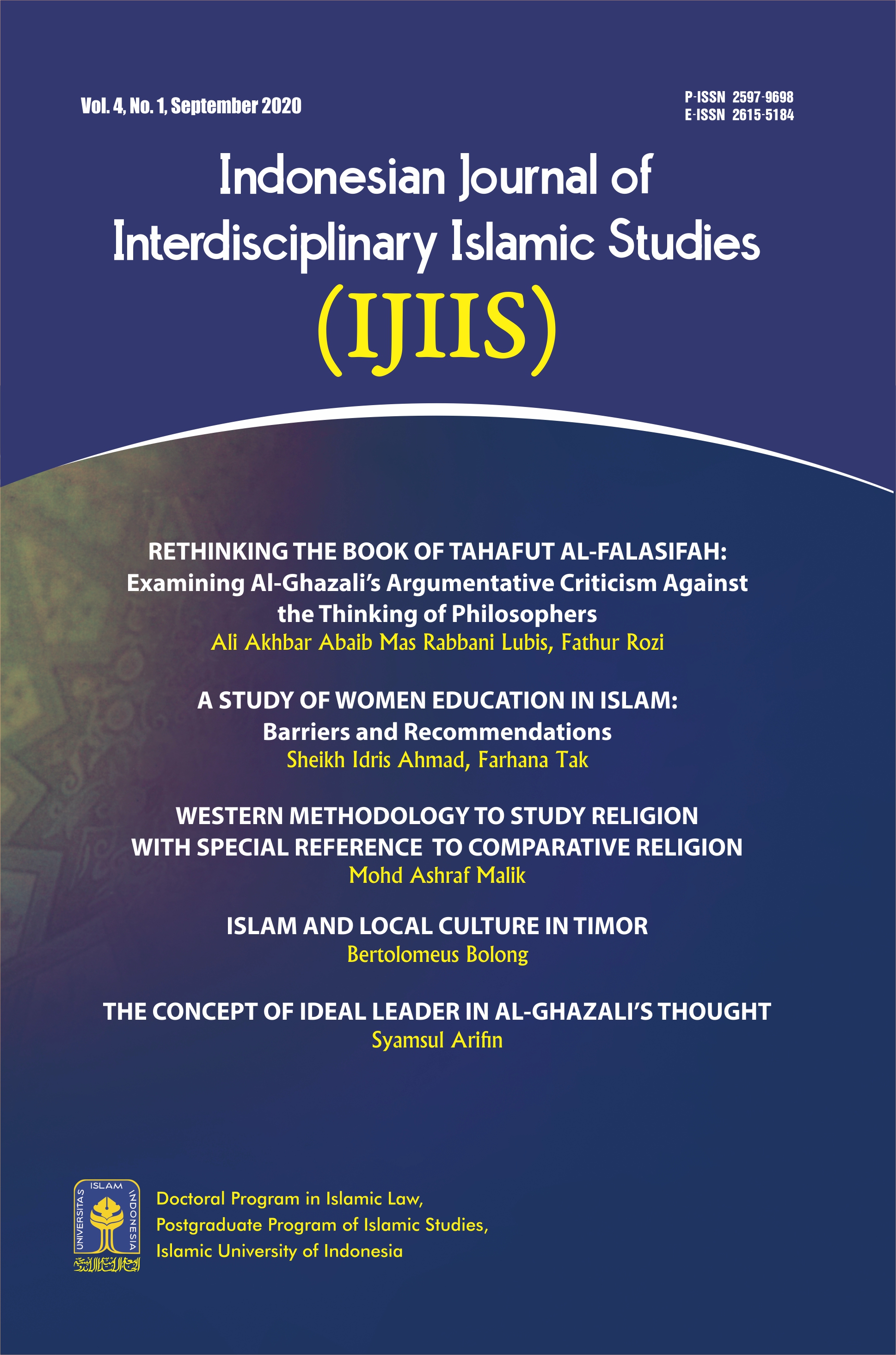Main Article Content
Abstract
The systematic study and comparison of religions have traversed a long path since Max Muller wrote Comparative Mythology in 1856. Muller had predicted about the ‘Science of Religion’ (Religionswissenschaft) as the ‘Science’ that is based on an impartial and truly scientific comparison of all, or at all events, of the most important religions of mankind. Such an approach was developed in contrast to the reductionist tendencies as found in the anthropological, sociological and psychological theories put forward by the scholars as E. B. Tylor, James Frazer, Herbert Spencer, Emile Durkheim, and Sigmund Freud, etc. The process of studying religions comparatively implied the understanding and appreciation for the religious phenomenon without passing any judgement on the religion studied. In the succeeding pages we will be discussing and analysing the approach and method known as phenomenological method in the study of religions. Such a method is a modified or revised form of comparative religion methodology as was envisioned by Max Muller in the 19th century.
Keywords
Article Details

This work is licensed under a Creative Commons Attribution-ShareAlike 4.0 International License.
References
- Chantepie de la Saussaye, Pierre Daniel., Manual of the Science of Religion, Tr.Beatrice Green: Coyler Ferugusson Longmans, 1891.
- Cox, James L., A Guide to the Phenomenology of Religion, London: T&T Clark International, 2016.
- Daniel, Kasomo, “The Applicability of Phenomenology in the Study of Religion”, International Journal of Psychology and Behavioural Sciences.
- Ernst, Carl W., Following Muhammad: Rethinking Islam in the Contemporary World, New Delhi: Yoda Press, t.t.
- Gale, Thomson., Encyclopaedia of Religion, 2005, www.encylopedia.com
- K. Pathil, “Scientific Study of Religions: Some Methodological Reflections”, Journal of Dharma, Vol. xxi, No. 2, April –June, 1996.
- Kristensen, W.B., The Meaning of Religion: Lectures on the Phenomenology of Religion, The Hague: Tr. J.Carman, , Martinus Nijhoff, 1960.
- Muller, Friedrich Max., Introduction to the Science of Religion, Longmans: Green and Co, 1873.
- New Catholic Encyclopedia, Vol. XII, 1966.
- Radhakrishnan, Sarvepalli, East and West in Religion, London: George Allen and Unwin Ltd., 1933.
- Smart, Ninian., A Dialogue of Religions, Westport: Greenwood Press, 1981.
- ______., The Phenomenon of Religion, New York: The Seabury Press, t.t.
- ______., The Religious Experience of Mankind, Glasgow: Collins Fount, t.t.
- ______., The World’s Religions: Old Traditions and Modern Transformations, Cambridge University Press, Cambridge,1992.
- Smart, Ninian., and Robert Segal, Study of Religion, www.britannica.com, retrieved on 09-03-2017
- Smith, Wilfred Cantwell, The Meaning and End of Religion: A New Approach to the Religious Traditions of Mankind, New York: Mentor Books, 1964.
- ______., Towards a World Theology, Philadelphia: Westminster Press, 1998.
- UNESCO, Phenomenology of Religion, www.interculturel.org, retrieved on 26-12-2017
References
Chantepie de la Saussaye, Pierre Daniel., Manual of the Science of Religion, Tr.Beatrice Green: Coyler Ferugusson Longmans, 1891.
Cox, James L., A Guide to the Phenomenology of Religion, London: T&T Clark International, 2016.
Daniel, Kasomo, “The Applicability of Phenomenology in the Study of Religion”, International Journal of Psychology and Behavioural Sciences.
Ernst, Carl W., Following Muhammad: Rethinking Islam in the Contemporary World, New Delhi: Yoda Press, t.t.
Gale, Thomson., Encyclopaedia of Religion, 2005, www.encylopedia.com
K. Pathil, “Scientific Study of Religions: Some Methodological Reflections”, Journal of Dharma, Vol. xxi, No. 2, April –June, 1996.
Kristensen, W.B., The Meaning of Religion: Lectures on the Phenomenology of Religion, The Hague: Tr. J.Carman, , Martinus Nijhoff, 1960.
Muller, Friedrich Max., Introduction to the Science of Religion, Longmans: Green and Co, 1873.
New Catholic Encyclopedia, Vol. XII, 1966.
Radhakrishnan, Sarvepalli, East and West in Religion, London: George Allen and Unwin Ltd., 1933.
Smart, Ninian., A Dialogue of Religions, Westport: Greenwood Press, 1981.
______., The Phenomenon of Religion, New York: The Seabury Press, t.t.
______., The Religious Experience of Mankind, Glasgow: Collins Fount, t.t.
______., The World’s Religions: Old Traditions and Modern Transformations, Cambridge University Press, Cambridge,1992.
Smart, Ninian., and Robert Segal, Study of Religion, www.britannica.com, retrieved on 09-03-2017
Smith, Wilfred Cantwell, The Meaning and End of Religion: A New Approach to the Religious Traditions of Mankind, New York: Mentor Books, 1964.
______., Towards a World Theology, Philadelphia: Westminster Press, 1998.
UNESCO, Phenomenology of Religion, www.interculturel.org, retrieved on 26-12-2017
